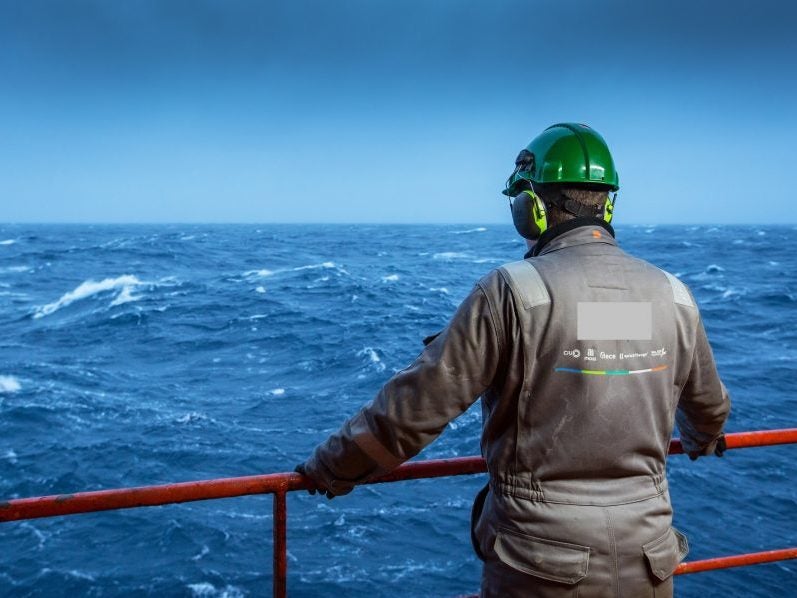UK-based energy industry contractor Petrofac has announced to staff in the UAE its decision to implement a plan to reduce its headcount in the country by 20%.
In a notice sent to UAE employees via email on 2 April, Petrofac outlined its redundancy programme, and offered staff the option to choose ‘voluntary redundancy’ or be prepared for the company to implement its ‘compulsory redundancy programme’.
Explaining the decision, George Salibi, Petrofac’s chief operating officer (engineering and construction), wrote: “The current situation with the [coronavirus] pandemic and the oil price drop has had an early unforeseen and severe impact on the global economy and our sector [oil and gas], hitting the E&C [engineering and construction] business hard.
“With the backdrop of lower than expected new order intake last year and a declining backlog, we have to take some tough but necessary measures to protect the business and ensure we are best placed for the future,” Salibi said.
The announcement regarding the UAE workforce, Salibi said, followed Petrofac CEO Ayman Asfari’s statement to the worldwide business on 2 April regarding ‘the unprecedented challenges we currently face’.
A Petrofac spokesperson declined to comment when contacted by MEED for an official response on the matter.
How well do you really know your competitors?
Access the most comprehensive Company Profiles on the market, powered by GlobalData. Save hours of research. Gain competitive edge.

Thank you!
Your download email will arrive shortly
Not ready to buy yet? Download a free sample
We are confident about the unique quality of our Company Profiles. However, we want you to make the most beneficial decision for your business, so we offer a free sample that you can download by submitting the below form
By GlobalDataOffer to UAE staff
Petrofac has told its UAE employees the company is offering the option to voluntarily leave their jobs between 5 April to 19 April. Details about end-of-service benefits will be communicated on an individual basis.
The management has the right to accept or deny applications for voluntary redundancy based on the requirement to ‘preserve key skills in the business’.
Employees whose voluntary exit requests have been granted must leave by 30 April.
If the management does not receive enough voluntary redundancy requests, it will implement the ‘compulsory redundancy programme’ from 1 May, which will be enforced on ‘less favourable terms’.
The company has also decided to cancel the pay rises it has accorded from 1 January, and UAE employees will therefore receive pre-hike salaries from 1 April.
“Promotional increases and bonuses are unaffected. We will not rescind the back-dated amount of the merit increase already paid,” Petrofac said in the email.
“Furthermore, with effect from 1 April 2020, we will be implementing a 10% reduction in basic salaries and in the housing allowance. All employees will be asked to agree to this change, and the removal of the merit increase, by signing an addendum to their contract of employment. For the avoidance of doubt, the transport allowance and the education allowance is unaffected.”
Recent UAE project awards
Petrofac in February secured a major contract from Abu Dhabi National Oil Company (Adnoc) to execute engineering, procurement and construction (EPC) works on the two main packages of the Dalma offshore sour gas field development project.
Adnoc awarded EPC contracts worth $1.65bn. A consortium of Petrofac and Malaysian contractor Sapura was awarded Package A, which relates to the offshore works on the Dalma project.
Adnoc said the contract value of Package A is $591m. Petrofac is the majority partner in the consortium.
Package B, relating to the project’s onshore aspect, has been awarded solely to Petrofac at $1.065bn.
Also in February, Petrofac said it was awarded a $40m contract for an EPC project by state-owned Sharjah National Oil Company (SNOC).
SNOC later in March confirmed the contract award to Petrofac saying the project in question is the planned Moveyid gas storage facility in Sharjah.
Petrofac global cost savings
In a public statement on 6 April, Petrofac said it has taken ‘decisive actions’ to rein in operational expenses during the challenging business climate brought about by the coronavirus global outbreak and low oil prices, including the following:
- Reducing overhead and project support costs by at least $100m in 2020 and by up to $200m in 2021
- Conserving cash and liquidity by reducing capex by 40% and suspending the 2019 final dividend
- Reducing and structurally rebasing salaries and allowances for the board, senior management and most of our employees by between 10% to 15%
- Reducing personnel by circa 20% and furloughing staff in anticipation of a reduction in activity levels
- Reducing non-staff overhead costs by up to 25%
As of 2 April, the Petrofac Group had liquidity of $1.1bn, following the planned repayment of a $75m facility in February.
A two-year extension of a $150m term loan in March 2020 has reduced debt maturities in the next 12 months to $275m.
An order intake of $2bn in the first quarter of 2020 has increased the backlog to $8.2bn.
S&P recently affirmed the group’s investment grade credit rating.
“We believe that these factors, together with a capital light business model and a strong competitive position in the Middle East where the cost of production is low, will protect us against near-term headwinds,” CEO Asfari has been quoted as saying in the statement.
This article is published by MEED, the world’s leading source of business intelligence about the Middle East. MEED provides exclusive news, data and analysis on the Middle East every day. For access to MEED’s Middle East business intelligence, subscribe here.








Related Company Profiles
Sharjah National Oil Corp
Petrofac Ltd
MEED
SNOC Inc.
Samp S.p.A.